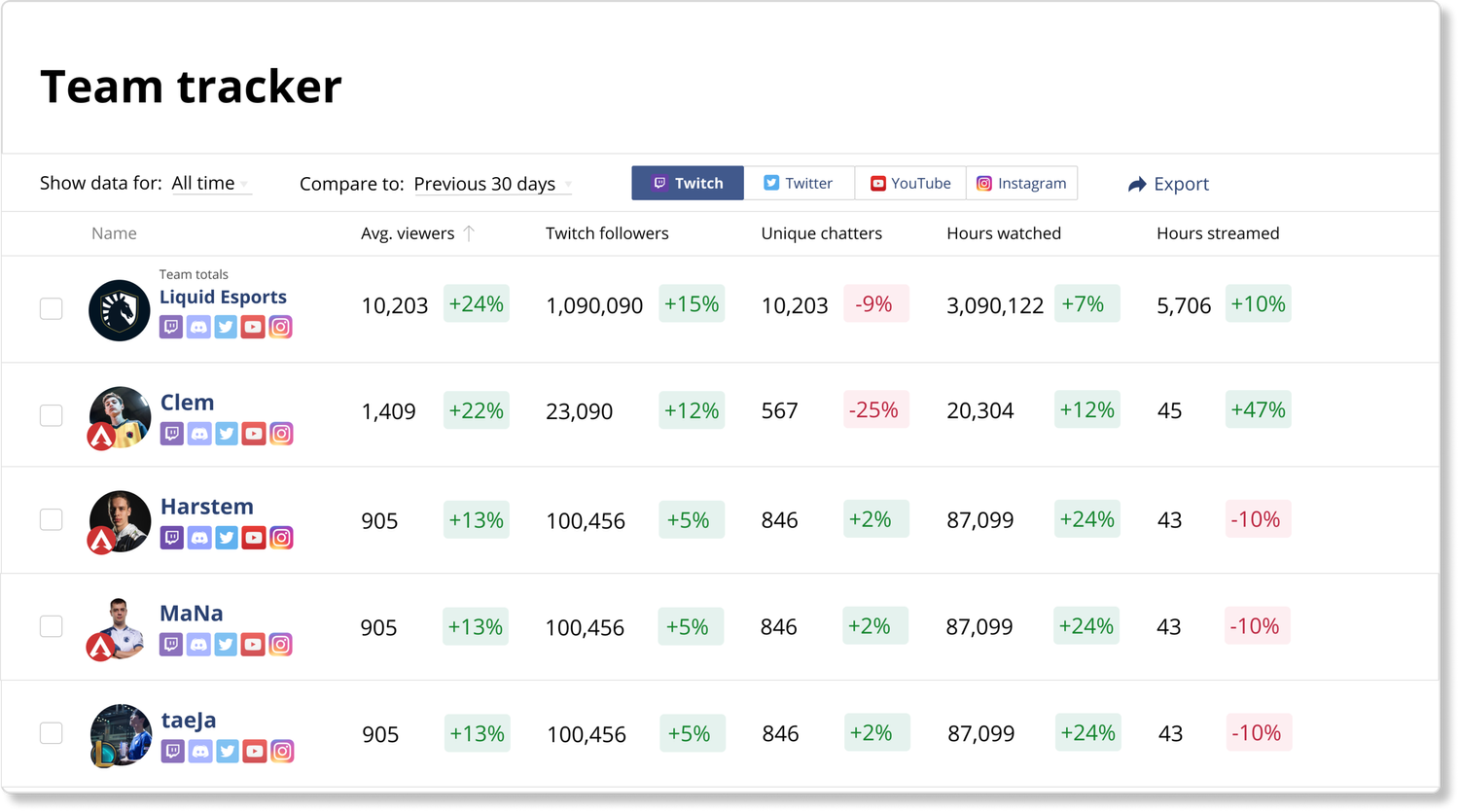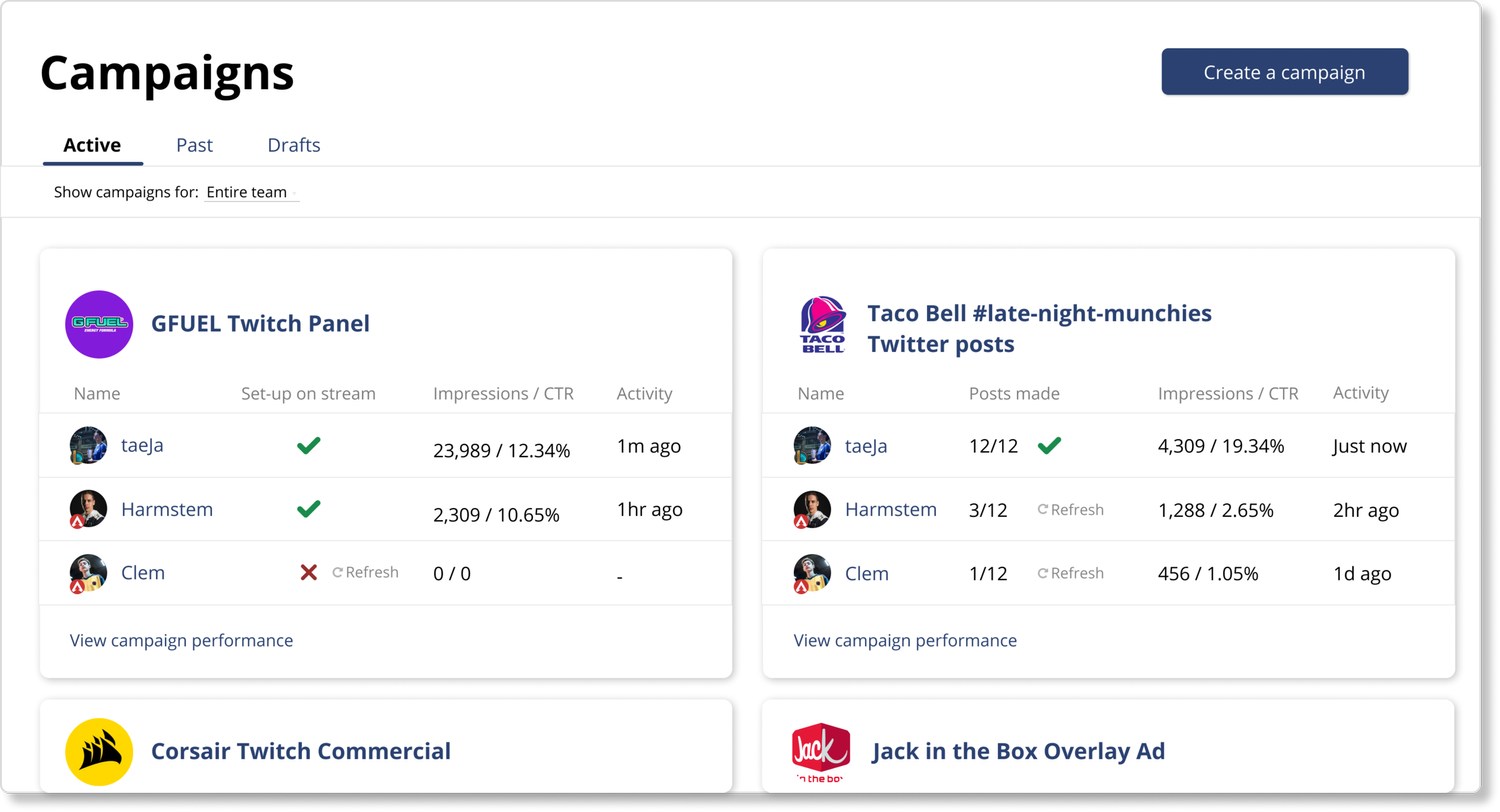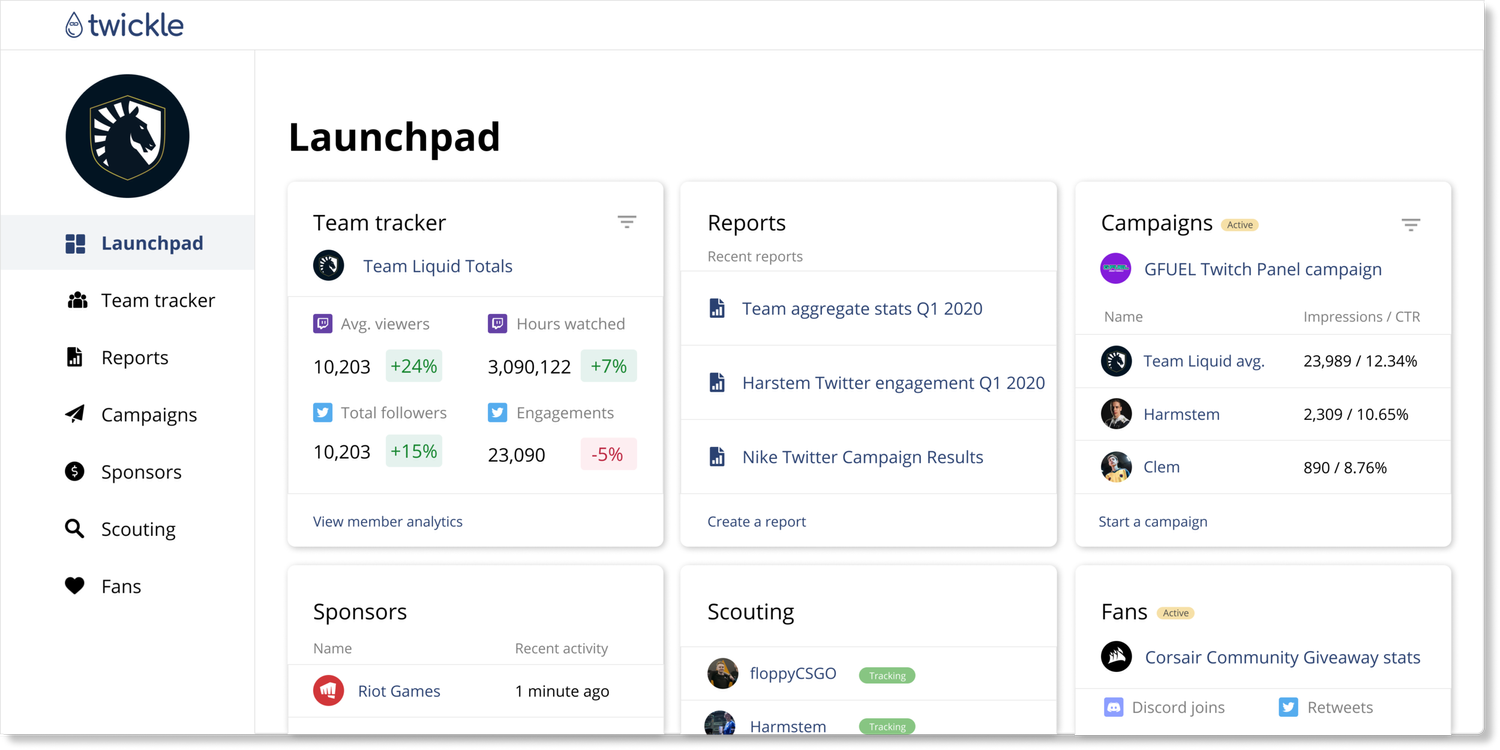Pivoting into esports
We set out to understand if esports teams could be viable customers for Twickle. By this time, we had learned a great deal about what not to do in building products.
We had heard about different esports team needs and spoke to some esports team members through our research, but we didn’t have enough data to make a judgement. We knew that esports teams make enough money through sponsorships to be viable customers. We decided to investigate using a new method.
Our product strategy followed a “mafia offer” method. Essentially, we conduct a basic problem finding interview, mock up a product out of those needs, get them to agree to a price and letter of intent for that product, then (after all of that!) build the product. This is a vastly different B2B approach, contrasted to our B2C experience. We’re still in the midst of this process, but so far so good!
Problem finding interviews with esports teams
We set out to connect with and interview different esports team managers.
Our project looked like this:
Goal: Identify the unmet needs of Esports team managers
Research questions:
-
What are the lives of esports teams managers like? What is important to them?
-
What are their most difficult and time consuming tasks?
Process: We held 12, 60 minute remote interviews, using a semi-structured protocol
-
We recruited managers from our own connections, posts on Reddit/Discord, and Apollo
-
Constructed a protocol based on our top research questions
-
Held remote video interviews over Discord / Google Hangouts
-
Walked through the questions and had participants screen share the artifacts they used
-
Transcribed interviews and coded for themes
-
Synthesize themes into a shareable document
-
Discuss findings and possible iterations of a product
Insights:
-
Managers need an easy way to get social data from all of their team members-
Typically, they’ll ask their team members for screenshots of their data across each platform to understand how they’re growing. From there, managers compile data they can share with prospective sponsors to persuade them to sponsor them. This takes hours and is really easy to mess up.
-
-
Managers have trouble tracking sponsorship campaign data for each team member-
Running a successful campaign requires tracking the success of each team members’ affiliate links, viewership at certain times, and content performance
-
They have to check to see if each team member set up each campaign correctly and track data from each member separately
-
-
Scouting new players and content creators to add to the team is a super manual process and is largely based on word-of-mouth
-
Finding new sponsorships takes hours of time-
Managers need an easy way to connect with non-endemic brands
-
Outcomes: We were able to use this information to mock up designs in Figma to show esports managers and get enough customers onboard to move forward.
Here are some of the designs we have been showing to prospective customers, after refining many of them post-negotiations:



Developing the esports teams product
We’ve been able to sign on teams for this product. After further interviewing our customers, we were able to discern a basic MVP with the most important features.
Through this lean startup method, we’ve been able to validate a product by getting paying customers to agree to payment and product before it has been built.
We’ve learned from our mistakes of building a product first, then testing payment. We’re in the process of working with these teams and getting traction, stay tuned!